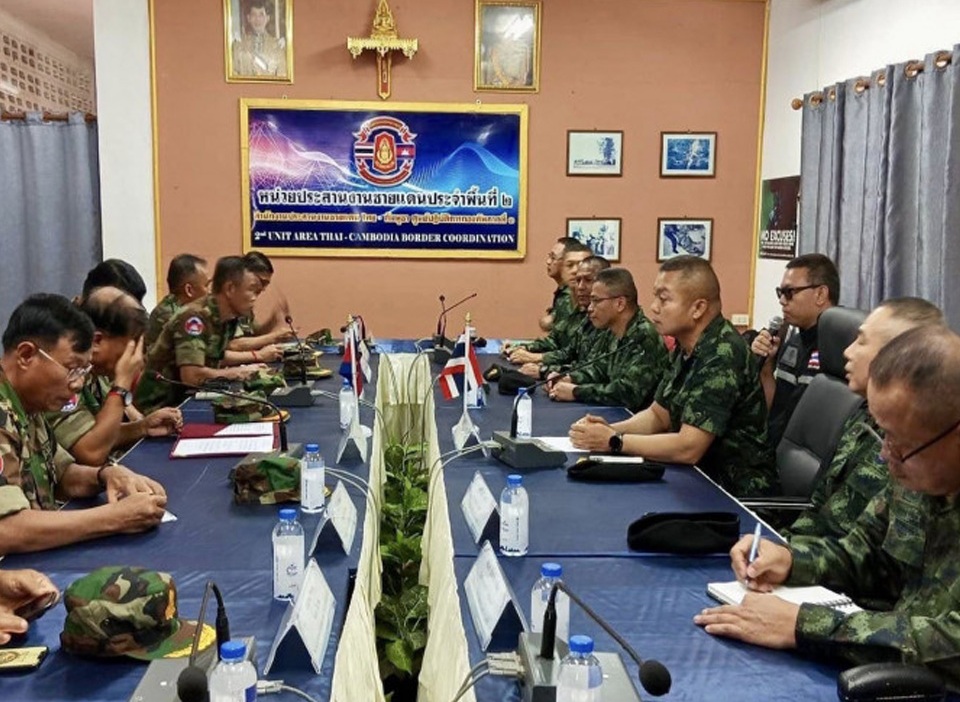Ceasefire, military complaints, and the showdown with Pheu Thai
The ASEAN-brokered ceasefire between Thailand and Cambodia appears to be holding despite Thai military reports of fresh Cambodian violations. More than 300,000 people have been forced to flee their homes. US tariffs on both countries and the political crisis in Bangkok hover in the background. The Constitutional Court's ruling on suspended Prime Minister Paetongtarn Shinawatra is expected on 4 August, with the potential of changing the balance of power between the civilian government and the military establishment.
Bangkok (AsiaNews) – The ceasefire between Cambodia and Thailand, which took effect at midnight on Monday, appears to be holding despite violations alleged by Thailand, and rejected by Cambodia, which is calling instead for the deployment of international observers.
The agreement was brokered by Malaysia, which holds the rotating presidency of the Association of Southeast Asian Nations (ASEAN).
In the background, we have the tariffs that the Trump administration imposed on both countries, some of the highest at 36 per cent, but which could still change. At the same time, Washington has a vested interest in playing the peacemaker in the border conflict, which began a week ago.
While the Thai government preferred to downplay the situation, noting that “general conditions along the border are reported to be normal,” the Thai military has accused Cambodia of “deliberate violation of the agreement” overnight and this morning. Cambodia has denied carrying out any hostile acts.
Attention now is growing for the approximately 300,000 refugees who fled the intense artillery fire of recent days, as well as Cambodian ground incursions, and Thai air strikes.
Overall, the situation remains shaky, particularly around the disputed temple areas, which are located in regions where the border has not yet been fully demarcated and mutually recognised, in the “Emerald Triangle”, a border area shared by Cambodia, Laos, and Thailand.
Yesterday, a meeting of regional military commands led to a seven-point agreement that provides, among other things, for the withdrawal of troops and the repatriation of the dead and prisoners (18 Cambodians, according to the Thai government).
The creation of a joint coordination group was also announced, pending a meeting of the General Border Committee scheduled for 4 August to review the situation and get things back to normal, with the reopening of transit and the return of the local population.
The number of casualties is also playing a role: officially 30 Thais, half civilians, and 13 Cambodians, five of them military, have died.
In Thailand, this outbreak of violence at the border is both a reflection and confirmation of the weakness of the civilian government and its difficult relationship with the military establishment, which has directly or indirectly ruled for nearly a century.
The Constitutional Court is expected to deliver its verdict on the lèse-majesté case against Thaksin Shinawatra, the former prime minister deposed by a coup in 2006 who went into voluntary exile in 2008.
He returned to Thailand two years ago and was pardoned pledging not to re-enter politics. However, he remains a key figure for the Pheu Thai party, which brought his daughter, Paetongtarn Shinawatra, to the helm of the government.
The government, however, has so far proven ineffective in managing Thailand's economic slowdown.
The military crisis between Cambodia and Thailand, fuelled by their respective nationalisms, is also linked to a 15 June phone call between former Cambodian Prime Minister Hun Sen and then Thai Prime Minister Paetongtarn Shinawatra.
The confidential conversation was made possible by the friendship and business ties between Hun Sen and Thaksin Senior, but have now cooled considerably.
The exchange, which was leaked to social media, sparked negative reactions in Thai public opinion because Ms Shinawatra is heard insulting the Thai military, which triggered to her suspension as prime minister and the appointment of an interim head of government pending the Constitutional Court's ruling on 4 August.
The consequences of the border confrontation could soon have repercussions on Thailand’s government, possibly sparking a political crisis or lead the armed forces to play a greater role, backed by traditional elites who have always been hostile to the Shinawatra family, the political forces linked to it, and the pro-reform movements that have emerged in recent years.
20/12/2025 14:59
16/07/2025 15:36







.png)










